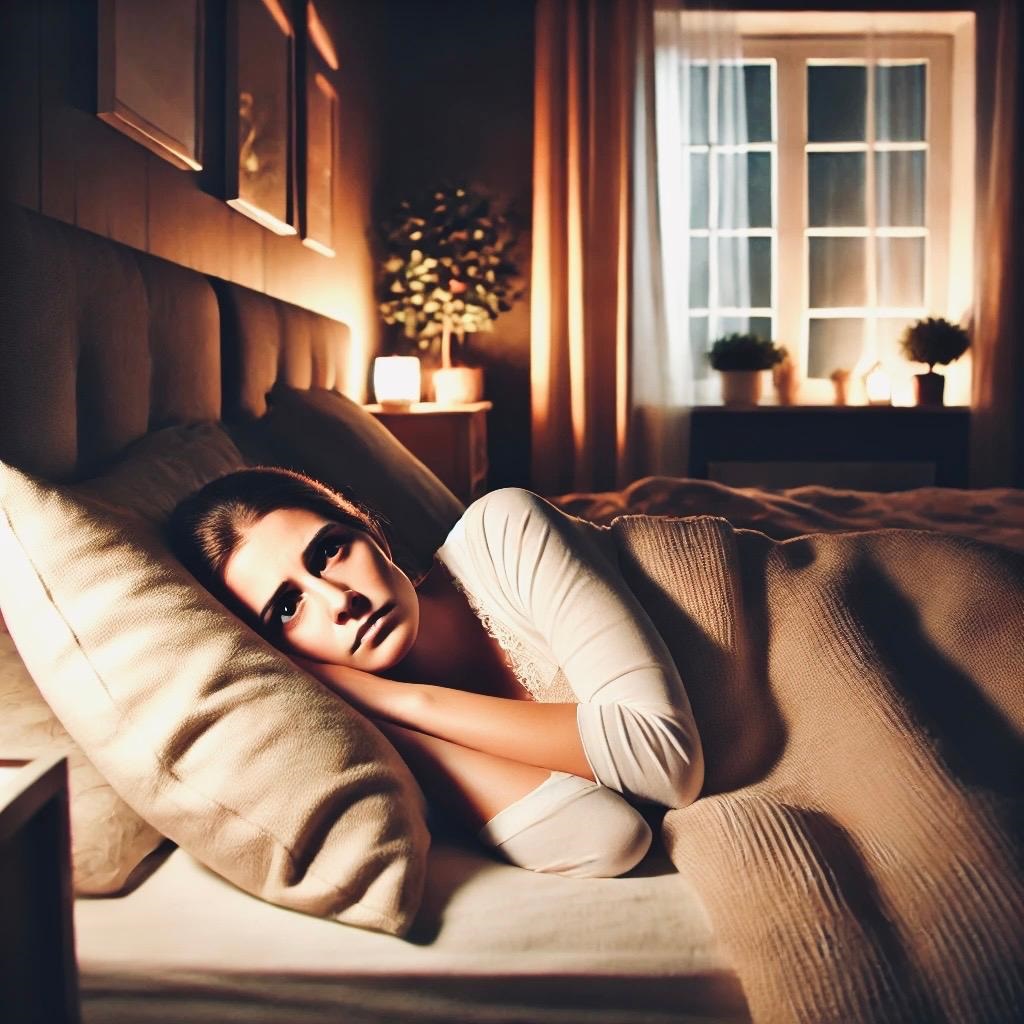Specialist Dr. Yaprak Arslan Psychiatrist & Psychotherapist
İzmir Psikiyatrist
İzmir Psikoterapist
izmir Psikolog
Psikiyatrist
Psikoterapist
Psikolog
Major Depression
Generalized Anxiety Disorder
Social Phobia
Panic Attack
Obsessive Compulsive Disorder OCD
(ADHD) Attention Deficit Hyperactivity Disorder
Bipolar Disorder
Depression Treatment
Supportive Psychotherapy
EMDR
Sex Therapy
Schizophrenia and Other Psychotic Disorders
Sleep Disorders: Causes, Symptoms and Solutions

Going to bed at night and not being able to sleep for hours, waking up frequently or feeling tired in the morning...
Sleep is a process in which our body and mind are renewed and is vital for our health. However, many people have difficulty falling asleep for various reasons, wake up frequently during the night or start the day feeling unrested in the morning.
The stress and busy pace of modern life leads to an increase in questions about ‘causes of insomnia’, ‘insomnia’ and ‘sleep disorders’.
While sleep is a basic need for our body and mind, many people struggle with different sleep problems. Sleep disorders not only make the night difficult and make us feel tired during the day; they can also affect our mood, concentration, work efficiency, immune system and overall health during the day.So, what are sleep disorders, why do they happen and how can they be solved?
Most Common Sleep Disorders
Sleep disorders include conditions that adversely affect a person's sleep patterns, impair sleep quality and cause daytime fatigue.
Sleep problems can occur in different ways.
1. Insomnia (Insomnia)
- Difficulty falling asleep or maintaining sleep
- Waking up too early in the morning
- Not waking up rested
It may be short-term or it may become chronic. Stress, anxiety, depression, irregular sleep habits and some medical diseases can lead to insomnia.
2. Circadian Rhythm Disorders
- It occurs as a result of the body's biological clock not adapting to environmental factors and is characterised by inability to sleep at night and excessive daytime sleepiness.
- It is common in people who work night shifts, travel frequently or have irregular sleeping habits.
3. Restless Leg Syndrome (RLS)
- An uncomfortable sensation in the legs and a constant desire to move them
- Usually worsens in the evening and before sleep
*In the presence of these symptoms, support from a neurologist should be sought.
4. Narcolepsy
- Excessive daytime sleepiness and sudden sleep attacks
- May include symptoms such as sudden loss of muscle control (cataplexy)
- It is usually associated with iron deficiency, neurological factors or genetic predisposition.
*In the presence of these symptoms, support from a neurologist should be sought.
5. Sleep Apnoea
- Respiratory arrest and resumption during sleep
- Loud snoring and excessive daytime sleepiness and headache are the most common symptoms
- If left untreated, it can increase the risk of heart disease and high blood pressure
*In the presence of these symptoms, support should be sought from an ear, nose and throat specialist.
Common Causes of Sleep Disorders
Sleep problems can have many causes. Some of these are related to stress factors, while others are based on chronic physical health problems:
- Stress and Anxiety: Being mentally overactive, worries of daily life can make it difficult to fall asleep.
- Depression: It can cause changes in the duration and quality of sleep; excessive sleepiness or insomnia.
- Irregular Sleep Habits: Late night screen use or irregular sleep hours can disrupt the biological rhythm.
- Environmental Factors: Factors such as noise, light, temperature can make it difficult to fall asleep.
- Nutrition, Caffeine and Alcohol Consumption: Eating heavy meals before going to bed can negatively affect sleep. While caffeine delays sleep by stimulating the nervous system, alcohol can reduce sleep quality.
- Medical Conditions: Chronic pain, respiratory diseases, stomach disorders or hormonal changes can adversely affect sleep patterns.
Suggestions for Healthy Sleep
If you are experiencing sleep problems, the following suggestions can help you establish a healthier sleep pattern:
- Set Regular Bedtimes: Going to sleep and waking up at the same time every day helps keep your body clock in balance.
- Reducing Screen Time: Blue light is known to suppress melatonin production. Leaving the use of phones, tablets and computers at least one hour before bedtime supports melatonin production.
- Creating Relaxing Routines: Taking a warm shower, reading a book or doing breathing exercises can ease the transition to sleep.
- Making Your Sleep Environment Suitable: Providing a dark, quiet and cool environment helps you sleep better.
- Paying Attention to Your Nutrition: Avoiding heavy and fatty foods before going to bed, limiting caffeine and alcohol consumption improves sleep quality.
- Increasing Physical Activity: Regular exercise can improve sleep quality, but heavy workouts should be avoided just before bedtime.
If your sleep problems persist for weeks, negatively affect your daily life or cause health problems, it is important to seek support from a specialist physician. Sleep disorders can sometimes be a symptom or consequence of serious health problems, mental and physical illnesses and can be resolved with appropriate treatment.
Good quality sleep is one of the cornerstones of a healthy life. Making small changes in your life for healthy sleep can make a big difference in your sleep quality.
Translated with DeepL.com (free version)
Psikiyatrist & Psikoterapist
